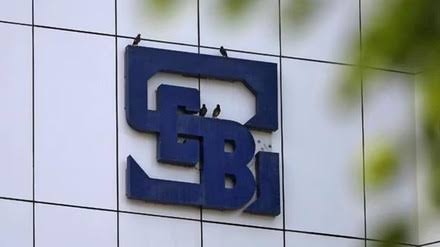Add your promotional text...
Understanding Sebi's Concerns Over SME IPOs: Systemic Risks, Fund Diversions, and Inflated Revenues
Synopsis The Securities and Exchange Board of India (Sebi) has identified systemic risks in SME IPOs, including diversion of funds, inflated revenues, and circular transactions. This article delves into Sebi's observations, the regulatory challenges, and the proposed measures to tighten oversight in this rapidly growing market.
VIEWS ON NEWS
By Monika Agarwal
11/20/20243 min read


Understanding Sebi's Concerns Over SME IPOs: Systemic Risks, Fund Diversions, and Inflated Revenues
The Securities and Exchange Board of India (Sebi) has identified systemic risks in SME IPOs, including diversion of funds, inflated revenues, and circular transactions. This article delves into Sebi's observations, the regulatory challenges, and the proposed measures to tighten oversight in this rapidly growing market.
Introduction: The Rise of SME IPOs and Regulatory Challenges
In recent years, Small and Medium Enterprises (SMEs) Initial Public Offerings (IPOs) have gained significant traction in India. With an astounding 245x increase in retail investor participation in FY24, compared to just 4x in FY22, the SME IPO segment has emerged as a vital channel for fundraising. However, this growth has also highlighted serious concerns regarding governance, financial integrity, and systemic risks.
The Securities and Exchange Board of India (Sebi) has raised alarms over unethical practices, including revenue inflation, fund diversion, and over-reliance on related-party transactions. In response, the regulator has proposed stricter measures to safeguard investor interests and ensure market stability.
Retail Investor Surge and Its Implications
One of the most striking developments in the SME IPO space is the surge in retail investor participation. Sebi’s data indicates that the applicant-to-allottee ratio has seen an extraordinary spike, marking a 245x increase in FY24. While this reflects growing retail confidence in SME stocks, it also raises concerns about market volatility and the lack of sophisticated investors, such as private equity (PE) firms, to act as a counterbalance.
The limited presence of institutional investors leaves SMEs vulnerable to promoter-driven influence. Many SMEs listed on the BSE and NSE are family-owned businesses, leading to high promoter concentration. This dominance often translates to unchecked decision-making power, which can adversely impact corporate governance and investor interests.
Revenue Inflation and Circular Transactions: A Growing Concern
Sebi’s discussion paper has uncovered alarming instances where SME companies inflated revenues through circular transactions. These transactions often involve related parties or shell companies, creating an illusion of robust financial health.
In one case, a company engaged in fraudulent sales and purchases via circular transactions with related entities. Such practices artificially boost revenue figures, creating positive market sentiment to lure unsuspecting investors. This deceptive strategy undermines market integrity and exposes retail investors to significant risks.
Diversion of Funds: Misuse of IPO Proceeds
Another major concern is the diversion of IPO proceeds. Sebi observed cases where funds raised through IPOs or Rights Issues were funneled into shell companies controlled by promoters. Such activities not only violate regulatory norms but also erode investor confidence.
The regulator has highlighted the misuse of related-party transactions (RPTs) as a common instrument for fund diversion. An analysis of FY23 annual reports of the top 50 SMEs listed on the BSE and NSE revealed that:
50% of the entities engaged in RPTs exceeding ₹10 crore.
20% had transactions surpassing ₹50 crore.
One in seven SMEs reported RPTs exceeding 50% of their consolidated turnover.
These findings underscore the need for heightened scrutiny and stringent controls to prevent fund siphoning through related-party dealings.
Systemic Risks and the Need for Oversight
Sebi views these practices as indicators of systemic risks in the SME segment. The regulator’s discussion paper emphasizes the urgent need for greater oversight in managing funds raised by listed SMEs. It also highlights the potential risks of siphoning funds and misusing IPO proceeds for purposes other than the stated objectives.
To address these challenges, Sebi has proposed stricter scrutiny of related-party transactions and tighter regulations on fund utilization. This includes monitoring the flow of funds to ensure they are used for legitimate business activities.
Concerns Over Offer for Sale (OFS) Mechanism
The discussion paper also touched upon the growing trend of Offer for Sale (OFS) in SME IPOs. In FY24, two pure OFS SME IPOs were recorded, alongside 52 issues with an OFS component. This mechanism allows promoters to dilute their stake, deviating from the original objective of the SME platform—to raise capital for business expansion.
Sebi has proposed restricting the OFS component in SME IPOs to 20% of the issue size. This measure aims to prevent misuse of the IPO platform for personal gain and ensure that the funds are directed toward business growth and development.
Conclusion: Striking a Balance Between Growth and Regulation
The rapid growth of SME IPOs signifies the evolving landscape of India’s capital markets. However, this growth comes with challenges that need to be addressed to protect investor interests and maintain market integrity. Sebi’s proactive measures, including tighter oversight of fund utilization, stricter scrutiny of related-party transactions, and limitations on OFS components, are steps in the right direction.
By implementing these reforms, the regulator aims to create a more transparent and accountable ecosystem for SMEs. This will not only enhance investor confidence but also ensure sustainable growth for the SME segment in the long run.
For retail investors, understanding these risks and regulatory changes is crucial to making informed investment decisions in the burgeoning SME IPO market.
